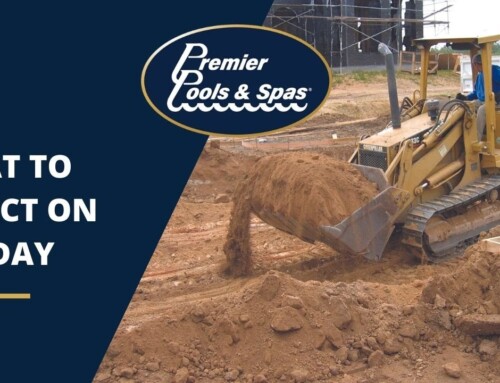Algae occurs when there is a lack in swimming pool maintenance. They make way to your pool when you miss the regular cleaning and maintenance schedules. Whether it is delayed cleaning or clogged filters, these elements become the perfect breeding ground for pool algae. Once it grows in your pool, you need to take a lot of steps for its removal. So, it’s better to prevent the algae growth in your pool. Keep reading to learn how pool cleaning can help prevent algae growth.
Maintain the Water Chemistry
To make your pool algae-free, make it a habit to test the chemical balance of your pool water at a regular frequency. There are high-quality test kits available to check the pH levels and chlorine in the water. Your pool water should have an ideal balance of 7.4-7.6 in the pH level to prevent algae. If the level is higher or lower than this limit, you should treat the water by adding sodium carbonate. To balance the level of chlorine, you can add sodium bi-sulfate to the pool water.
Maintain Proper Water Circulation
A consistent flow of water is essential in your pool for many reasons. It distributes the pool chemicals evenly and helps the filter to keep the water clean. Also, constant water circulation prevents algae growth in the pool. To maintain this proper circulation, you should clean the skimmer baskets and pump baskets every week. Backwash the pool filters regularly. Most importantly, run the pool pump at least 8-10 hours every day. This is a great step in pool cleaning to prevent algae.
Keep the Pool Filter in Working Conditions
Running the pump regularly is essential to keep your pool filters clean and effective. You should backwash the filters every month to keep them clean. Also, if you notice any water pressure changes, it’s time to clean the filter. If you have a sand pool filter, it is advisable to backwash it every week. And, if the issues persist, it’s time to replace the pool filter sand.
Shock Your Swimming Pool
Giving the shock treatments to swimming pools is an effective way to control algae growth in the early stages. You should give this treatment every week using calcium hypochlorite. For algae overgrowth, though, your pool may require additional treatments. If you have black algae in your pool, consider it a severe water condition that needs multiple shocks.
Brush the Pool Regularly
When it comes to pool cleaning, the filters do the heavy lifting. However, they cannot scrub the pool walls that can serve as breeding ground for pool algae. So, you should take this task in your hands and brush your pool regularly. A nylon brush works for most of the pool types. Avoid using a harsh brush if you have a fiberglass or vinyl pool. When brushing, scrub clean the walls, steps, and all corners of the pool.
 Regular Vacuuming
Regular Vacuuming
Brushing makes debris and algae come loose in the pool. To eliminate them, you can vacuum the pool surface using an automatic pool cleaning system. You can also do manual vacuuming that prevents recirculation of algae-infested water.
Build a Swimming Pool with Premier Pools & Spas
It is important to build with a swimming pool builder that has been around for a while and knows what they’re doing. Premier Pools & Spas has been around for over 30 years and has built over 70,000 swimming pools. Not only do we care about customer service, but we want to make families dreams come true across the nation. Let Premier Pools and Spas build your backyard oasis, contact us today and receive a free design quote.





